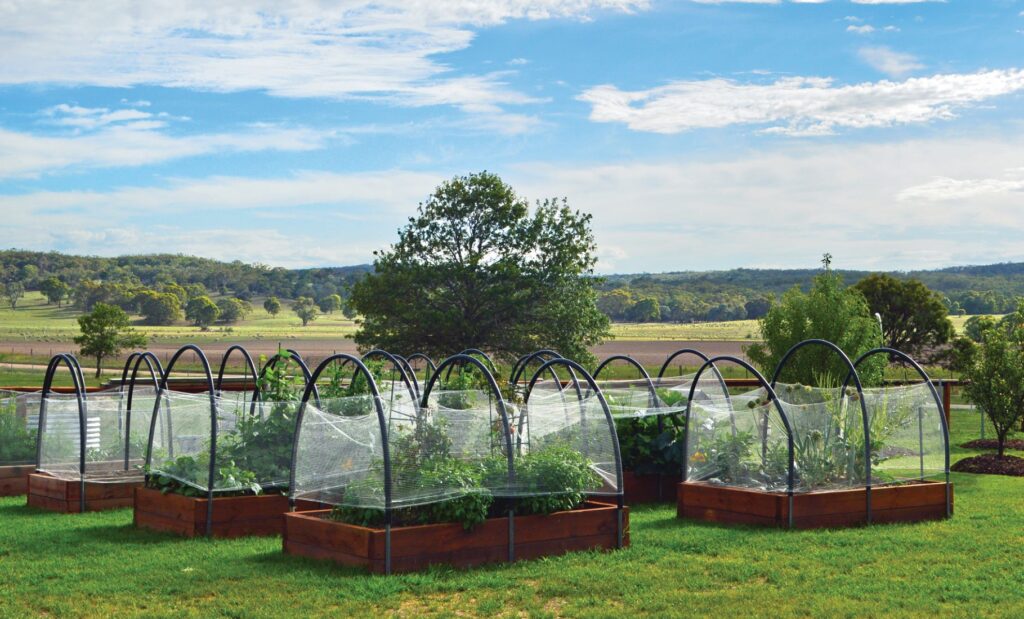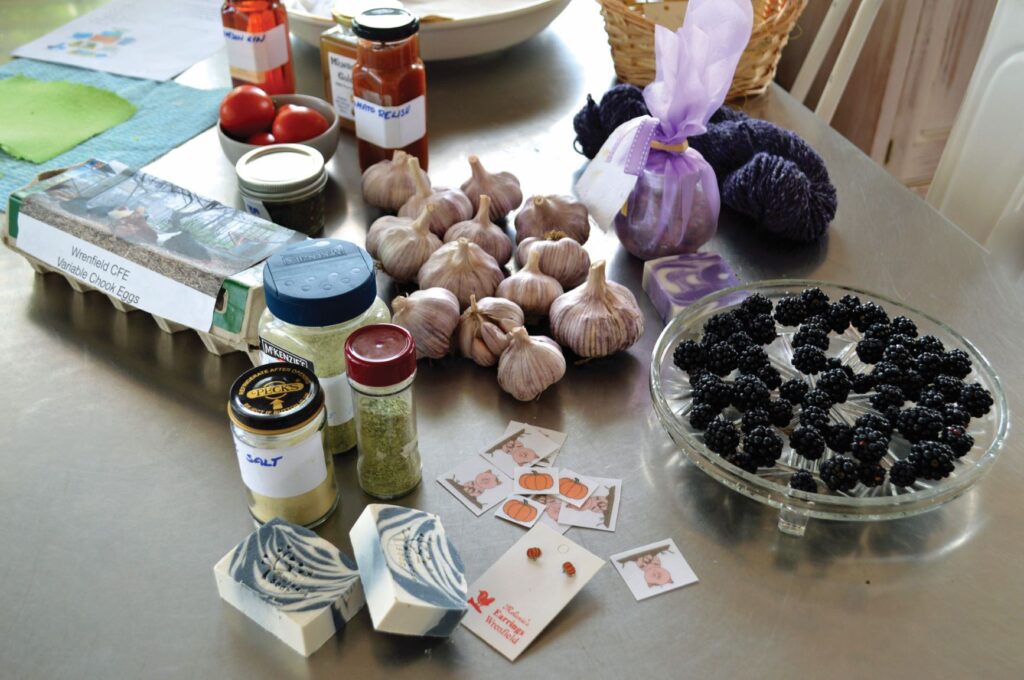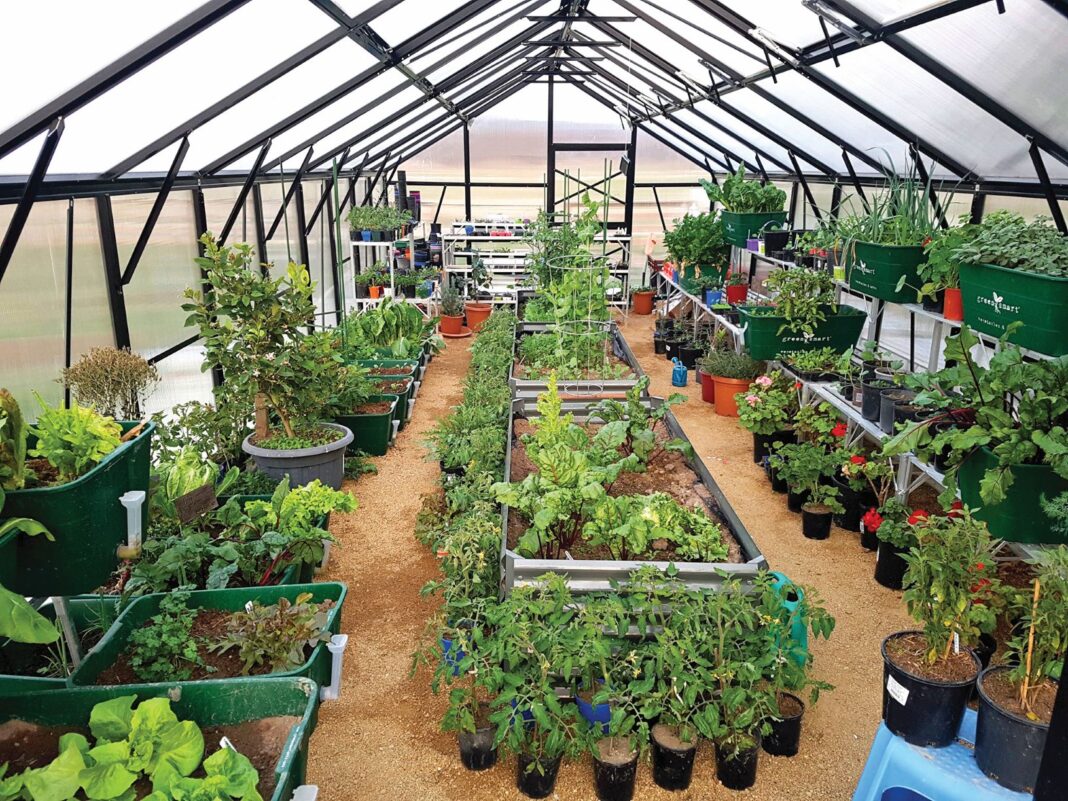I recently met Tina and John on their family’s 2,000 acre, six generation sheep grazing property in Currawang, near Collector NSW. Although relatively new to gardening, Tina has always fostered a connection with nature. She participated in an introductory permaculture course several years ago, which started her on a whole new and exciting journey.
The family have built multiple raised vegetable garden beds in the large, relatively level garden. The beds are watered via drip irrigation and are topped up each season with compost, local manures and mulch.
Tina practises crop rotation and companion planting, and any pest problems are controlled culturally or with garlic and chilli spray, but only if necessary.

A 40 square metre glasshouse was installed in April 2018 so Tina can get an early start on cold-sensitive summer crops. The innovative roof vent controls are filled with wax, which melt as temperatures rise and open the vents.
One of Tina’s (many) favourite crops is garlic. She trialled 113 locally-sourced cloves in 2017, before growing 3,000 cloves of local variety Monaro Red in 2018. Aside from a more than reasonable mishap with delinquent Australian icon, the white cockatoo, and a searing summer, Tina harvested a crop of large and unsurprisingly delicious garlic scapes and bulbs. The harvest was preserved, cured, gifted, sold and exchanged.
There is a small, newly established orchard with olives (existing), stone fruit and pome fruit trees. Tina said it has had its fair share of pest problems, big and small, and that they are monitoring the potential of the trees before they consider enclosing the area.
Born out of an aversion to waste, Tina established the Currawang Food Exchange (CFE) in July 2018 to share and barter excess produce. CFE have monthly meetings where they exchange goods and services, green living trials and tribulations, and discuss a main agenda topic such as purchasing bulk foods, recycling or reducing waste.

The initiative has grown to include ‘pigs’ and ‘pumpkins’ tokens, enabling group members to purchase tokens to buy goods until such time when they have something of their own to exchange. Any excess tokens are deposited into the ‘Currabank’ to be used to buy seeds and other goodies for the group.
Tina stresses that growing food is about so much more; it’s about sharing and exchanging goods, services and information. Most of all, it’s about community and having fun. With experience gardening in small spaces, Tina said you can start anywhere, somewhere, no matter your experience where you live or your circumstances.
Propagation workshop
Join Tracey Bool, production nursery horticulturist and Canberra Daily gardening writer, for a practical gardening workshop on 2 March. Tracey will talk about and give practical demonstrations in the general principles of propagation. Participants will then take a walk through the beautiful Lanyon gardens where Tracey will explain ways of propagating some of the plants growing there and demonstrate how and when to collect plant material and seeds.
When: Saturday 2 March 10.30am-12pm
Where: Lanyon Homestead, Tharwa Drive, Tharwa
Cost: $25; members and eligible concession card holders $20
For bookings and more: lhpropagation.eventbrite.com.au; historicplaces.com.au/lanyon-homestead
For more:



